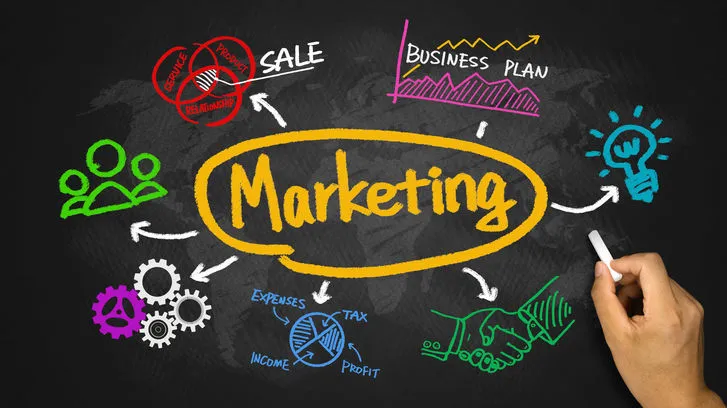Marketing is the lifeblood of any successful business. Whether you’re launching a new product, promoting a service, or building a brand, a well-executed marketing strategy can drive growth, foster customer loyalty, and create lasting relationships. In this article, we’ll explore the fundamentals of marketing and why it’s essential for any business to thrive in today’s competitive landscape.
What is Marketing?
At its core, marketing is the process of promoting and selling products or services to customers. This includes market research, advertising, sales strategies, public relations, and branding. The goal is to understand your target audience’s needs and wants, and then create strategies to meet those demands effectively.
Key Elements of Marketing
- Market Research
Before diving into any marketing efforts, it’s crucial to understand your target market. Market research helps businesses gather valuable information about consumer behavior, preferences, and trends. By analyzing this data, you can tailor your products or services to meet customer needs and identify your competition. - Branding
Branding is how you present your business to the world. It’s the identity you create through logos, colors, messaging, and values. A strong brand helps build trust and recognition with your audience. Effective branding conveys who you are, what you stand for, and why customers should choose your products or services. - Advertising and Promotion
Advertising involves spreading the word about your product or service through various channels such as print, online ads, TV, radio, and social media. Promotions can include discounts, special offers, and giveaways to encourage people to buy or try your product. The goal is to create awareness and interest in your offering. - Content Marketing
Content marketing is a strategy that focuses on creating and sharing valuable content to attract and engage an audience. This could include blogs, videos, podcasts, or social media posts. By providing helpful, informative, and entertaining content, you build a relationship with your customers, which can lead to more conversions and brand loyalty. - Social Media Marketing
Social media is one of the most powerful tools in modern marketing. Platforms like Facebook, Instagram, Twitter, and LinkedIn allow businesses to connect directly with their customers. Social media marketing helps build community, drive engagement, and create brand awareness. It also offers a great opportunity for paid advertising through targeted ads. - Email Marketing
Email marketing remains one of the most effective ways to reach customers. By sending targeted emails, businesses can nurture leads, promote special offers, or inform customers about new products. Personalized emails that provide value are more likely to drive customer engagement and conversions.
Building a Marketing Strategy
A solid marketing strategy is crucial to ensuring your business reaches the right audience and achieves its goals. Here are some steps to help you create a winning marketing strategy:
- Define Your Target Audience
Identify the people who are most likely to purchase your product or service. Consider demographics such as age, gender, location, interests, and income levels. Understanding your audience will help you craft messages that resonate with them. - Set Clear Objectives
What do you want to achieve with your marketing efforts? Whether it’s increasing brand awareness, driving sales, or growing your social media following, setting clear goals allows you to measure the effectiveness of your campaigns. - Choose the Right Channels
Not all marketing channels are suitable for every business. Consider where your target audience spends most of their time. If your audience is active on Instagram, then visual content and influencer collaborations may be ideal. If your audience prefers reading, content marketing through blogs or email may be a better choice. - Create Engaging Content
Content is king. Whether it’s a catchy social media post, a blog article, or a video, your content must be engaging and valuable to your audience. High-quality content can help build trust, increase engagement, and lead to conversions. - Analyze and Adjust
Marketing isn’t static. Constantly monitor your campaigns and analyze the results. Use data and insights to understand what’s working and what isn’t. Be prepared to adjust your strategy to optimize performance and improve results.
Trends in Modern Marketing
- Influencer Marketing
Collaborating with influencers who have large followings on social media has become an essential marketing tool. Influencers have the ability to reach niche audiences and provide authentic product recommendations. Businesses partner with influencers to build trust and expand their reach. - Artificial Intelligence (AI) in Marketing
AI is revolutionizing marketing by helping businesses understand consumer behavior, predict trends, and personalize customer experiences. AI-powered tools can automate tasks, analyze data, and enhance customer service, leading to more efficient marketing campaigns. - Video Marketing
Video content continues to dominate digital marketing. Whether it’s short-form videos on TikTok or long-form YouTube content, video is an engaging way to showcase products, share stories, and connect with audiences. Live streaming is also growing in popularity, allowing businesses to interact with their audience in real-time. - Sustainability and Social Responsibility
Modern consumers are increasingly concerned with social and environmental issues. Brands that showcase their commitment to sustainability, ethical practices, and social responsibility are more likely to connect with socially conscious customers.
Conclusion
Marketing is a dynamic and essential aspect of any business. Whether you’re a small start-up or an established company, having a clear marketing strategy can help you reach your audience, build brand loyalty, and drive growth. By understanding the fundamentals of marketing, embracing modern trends, and continually adapting to the market, you can position your business for long-term success.

